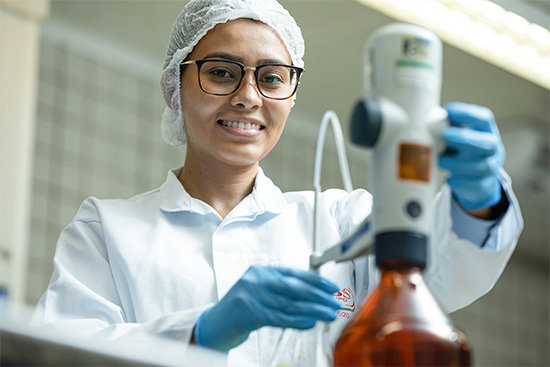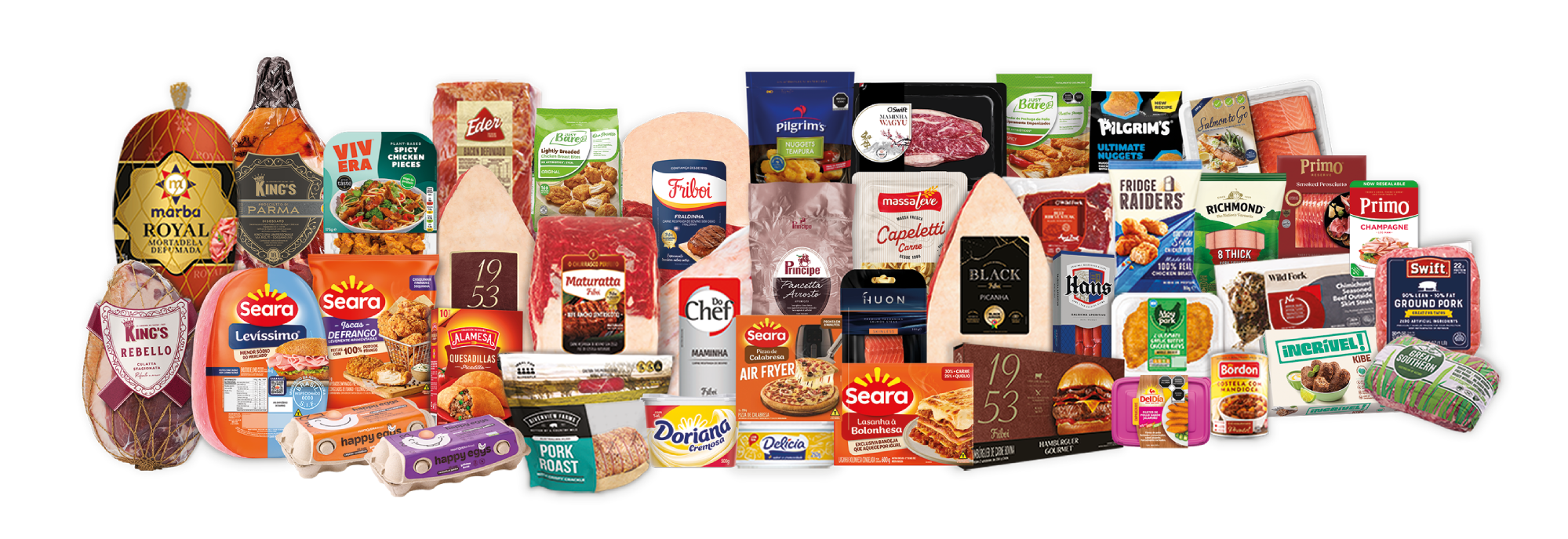Product Innovation

Innovation is essential to our ongoing evolution. It drives us to develop more efficient practices that improve environmental performance, team member health and safety, food safety and quality, and animal welfare – all while continuing to provide high-quality food to millions of people worldwide. This mindset reflects our belief that we all have a role to play in building a better future. By continuously investing in research and state-of-the-art technology, we keep innovation central to how we develop new products, monitor raw materials, operate our facilities, and recycle and repurpose waste.
Research, Development, and Monitoring
We take a structured approach to product innovation, grounded in research and development (R&D) and stakeholder collaboration. All R&D activities – such as new product development, pilots, and product improvements – are guided by applicable legislation, industry guidelines, internal policies, customer needs, and consumer insights.
We continuously monitor changes in consumer preferences and shifts in the regulatory landscape as key inputs to our product innovation approach. Today, there is a growing demand for products with cleaner labels, healthier formulas, and responsibly sourced ingredients. Together with public and private sector partners, we are innovating to create more nutritious food options while maintaining exceptional flavor, including through the use of new ingredients, storage methods, and processing technologies. For example, in partnership with Colorado State University (CSU), we established the JBS Global Food Innovation Center, a research and education hub focused on advancing food safety, meat sciences, and animal welfare practices. The Global Food Innovation Center plays a key role in education and training initiatives, while also conducting equipment testing to support continuous improvement.
Learn more about the JBS Global Food Innovation Center.

